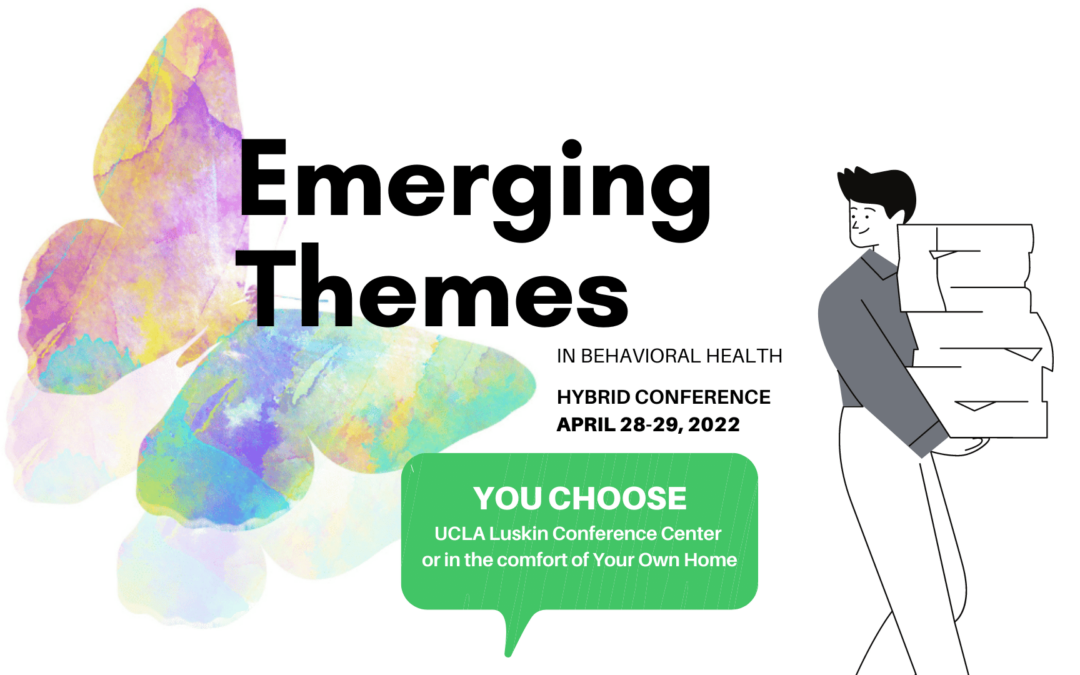The pandemic has had an undeniable effect on the way we gather. This past year and a half, many of us have had no choice but to attend work, school, and even social events partially or fully online. We have been forced to adapt (many of us reluctantly so) to an increasingly virtual world.
Although online conference platforms such as Zoom were already gaining traction prior to the pandemic, safety concerns forced many of us to take our online engagement to a whole new level.
Many educational institutions and companies who were forced to move certain processes online, realized that a hybrid model might actually be an efficient and accessible solution for their organization. Aware of this shift toward hybrid, Microsoft published “Hybrid Work: A Guide for Business Leaders”, (WHEN?) and unveiled their vision for reimagining meeting rooms and physical work spaces. Their modeling has influenced policy makers across all business platforms.
What are Hybrid Events?
Hybrid events combine in-person and virtual attendance, with the virtual portion typically streamed live online. Hybrid events and conferences offer traditional event features to both their in-person and virtual audiences, such as keynote speeches, specialty lectures, educational seminars, and product exhibitions, as well as networking and sponsorship opportunities.
For in-person attendees, the hybrid event offers not only the benefits of face-to-face meetings, but the chance to interact with a larger and more diverse group of virtual attendees. Technology is evolving to facilitate increasingly sophisticated communication between live and virtual attendees, creating an immersive experience for both.
Are Hybrid Events Popular?
While data shows that many people are itching to get back to in-person events, it also reveals that another portion of the population still feel safer and more comfortable attending events virtually (citation).
Even prior to the pandemic, demand for hybrid events was beginning to grow. They provide unprecedented access to attendees independent of location, financial resources, or ability to travel.
Due to health and travel concerns, there is now an even higher demand for hybrid events. Hybrid events provide attendees the freedom to choose between participating virtually or in-person, and they give organizers the opportunity to offer an inclusive and socially conscious response to our current global situation.
Advantages of Hybrid Events
The shift to hybrid is an opportunity to rethink everything from attendee and sponsor experience to field-specific learning and education. Information can be streamed simultaneously from jungles in the Amazon to labs at major educational institutions, offering exciting opportunities for the cross-pollination of ideas.
While attending both in-person and virtual events each have their unique pros and cons, hybrid events give attendees the freedom to choose the option that is best for them, thus giving access to a much broader group of people.
In addition to increased access to attendance, hybrid events create a whole new set of interaction possibilities. Presenters can simultaneously share their presentation with both in-person and virtual attendees and can also take questions from both audiences. Similarly, sought-after speakers or presenters who cannot attend the event in-person can speak virtually in front of an in-person and virtual audience and can respond to questions from both types of attendees.
This dynamic creates a more engaging experience for the virtual attendee, and significantly increases the reach of speakers and presenters.
Reasons to Attend
Industry conferences have long been a way to:
· Learn about emerging ideas and trends in your field
· Network and schmooze
· Make a name for yourself or your company
Hybrid events meet these traditional needs and add an element of engagement and accessibility to a larger, more diverse group of attendees.
While data analytics polls have shown that people still prefer in-person gatherings, hybrid conferences are becoming more and more popular. With the development of increasingly sophisticated communication and interactive technologies, this trend is likely to continue.
Want to give hybrid events a try? Be sure to check out Emerging Themes in Behavioral Health, taking place April 28-29, 2022 at the UCLA Luskin Conference Center.

